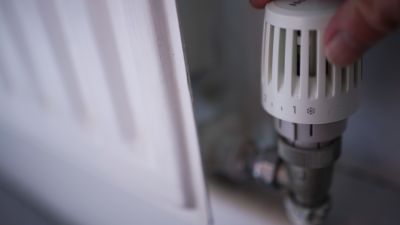Energy bills to drop by estimated £1,000 a year on average as Ofgem lowers price cap

Ofgem will drop its cap on the amount energy suppliers are able to charge by around £1,000 – but analysts believe bills will still rise by an average of £500. The energy regulator announced that it will drop its cap on the amount energy suppliers are able to charge by around £1,000 to £3,295, effective from 1 April. The energy price cap sets a maximum price that energy suppliers can charge consumers for each kilowatt hour (kWh) of energy they use. How much individual households pay depends on how much energy they use. However, analysts have warned customers are set to pay about 20% more on their bills – approximately £500 – as the government’s additional support in the form of the Energy Price Guarantee (EPG) only partially protects consumers from paying the full amount under the price cap.
Financial journalist Martin Lewis, on the other hand, believes it's likely that the 20% increase will be delayed.
"Reading the rooms... I now think that there is a good chance the government will not do the 20% increase on the 1st of April," Mr Lewis said on ITV's Good Morning Britain.
He believes the government will postpone the increase as a result his campaign - backed by national charities and energy retailers - calling for it to do so.
What is the government's Energy Price Guarantee?
The EPG limits the amount that domestic customers pay to 34p per kilowatt hour (kWh) for electricity and 10.3p per kWh for gas – which works out at £2,500 per year for the average household – with the government picking up the difference between Ofgem’s price cap and the EPG. This support is set to become less generous from the beginning of April, rising to an average bill of £3,000. When the upcoming end of the £400 energy rebate scheme – paid in six instalments of £66 and £67 a month – is factored in, the energy cost for households will increase even more. Ofgem’s price cap is currently set at £4,279 per year for the average household, meaning the government has probably been paying about £1,779 per year to energy suppliers on average for every household they serve between September and March. The predicted fall of the Ofgem price cap to £3,295, and the rise of the energy price guarantee level to £3,000, means the government will be paying just £295 per household per year from April to June.
Price cap is expected to continue decreasing
Energy consultancy Cornwall Insight said it expects the price cap to fall further, to £2,153 in July and then hit £2,161 from October. This will be well below the price guarantee, so will feed through to lower bills for customers and reduce the government’s part of the bill to zero. Even these bills are around double where the price cap had been before the energy crisis. Dr Craig Lowrey, principal consultant at Cornwall Insight, said: “Regrettably, the forecast for April looks set to leave the price cap above the increased Energy Price Guarantee level, meaning average annual consumer bills will effectively jump by 20% (£500).
Want a quick and expert briefing on the biggest news stories? Listen to our latest podcasts to find out What You Need To Know.
“However, this is before we take into account the end of the £400 energy rebate scheme in March, meaning that the cost of energy for households will increase by even more. “While tumbling cap projections are a positive, unfortunately already-stretched households will be seeing little benefit before July. “While prices under the cap remain considerably higher than historic norms, the combination of falling wholesale prices and an increase in the EPG could see the return of competitive tariffs, and with it the chance for consumers to take back some control over their energy bills.”
On Monday, an online portal opened to help 900,000 more households across England, Scotland and Wales to access the £400 support from the government to help with energy bills. Households without a direct relationship to an electricity supplier, such as those living in park homes and care homes, can now apply on the online portal to receive the support as a one-off, non-repayable lump sum under the “alternative funding” route of the government’s Energy Bills Support Scheme (EBSS AF). A dedicated customer helpline is available to assist eligible customers without online access. The payment will be paid directly into people’s bank accounts.